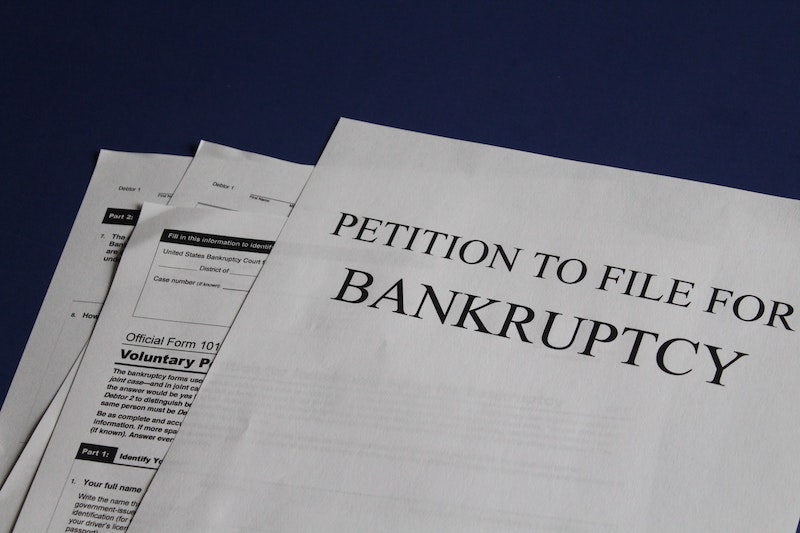What to do When Owners in bankruptcy violate the Covenants and the Intersection of Bankruptcy with Collections and Foreclosure
Although we are well past the halfway point of 2021, the pandemic continues to affect daily life and finances for many Americans. Critically, with eviction and foreclosure moratoriums coming to an end and government assistance programs expiring, there is a predicted surge in bankruptcy filings likely to occur.
For the volunteers leading community associations, it is important to be prepared to handle bankruptcies of owners in your communities. Sometimes, the issues community leaders must address go beyond the bankruptcy basics. For example, how should homeowner and condominium associations handle covenant violations for owners in an active bankruptcy? What happens when collections, foreclosure, and bankruptcy collide? These are some of the common questions we explore below.
Bankruptcy Basics Reminders
Knowing the basics about what homeowner bankruptcies mean to community associations is crucial for every board of directors. We explored those basics in an earlier blog post here: HOA Bankruptcy Basics. Understanding the fundamentals of the automatic bankruptcy stay, the significance of the bankruptcy filing date, and the differences between the various chapters of personal bankruptcies can help boards of directors protect their associations’ interests. Chapter 7 is known as a “liquidation” bankruptcy whereas chapter 13 is known as a “reorganization” bankruptcy. Most significantly, every board should remember these two fundamentals when an owner in their community files bankruptcy:
- Automatic Stay: The automatic bankruptcy stay prohibits an association from engaging in any bankruptcy collection activity while an owner is in bankruptcy.
- Pre- and Post-Petition Account: The owner’s account should be split into “pre-petition” and “post-petition” ledgers with the filing date as the “split” date.
Covenant Violations During Bankruptcy
The automatic bankruptcy stay prohibits creditors from engaging in any HOA fees in bankruptcy or collection activity against a homeowner in an active bankruptcy case, but it does not exempt the homeowner from complying with the use restrictions and following the rules of the community. Even during bankruptcy, homeowners are required to keep their home and property in compliance with the community-wide standard and restrictions set forth in the association’s governing documents.
When a homeowner in active bankruptcy fails to abide by the community’s governing legal documents, the association may issue violation notices in accordance with the association’s governing documents and advise the homeowner to address or correct any noncompliant issues or be subject to fines or other penalties provided by the documents if the violation continues. Importantly, the association may not take action to collect fines or threaten to do so.
If a homeowner’s violation is egregious, the association may seek stay relief from the bankruptcy court to pursue correction of the violation. If the stay is lifted, the association may file a covenant enforcement lawsuit in state court. If the violation preceded the bankruptcy case, with the stay lifted, the association may also be able to enforce any existing order it obtained prior to the bankruptcy case providing for injunctive relief.
In light the federal law governing the automatic bankruptcy stay, if your association seeks to enforce a covenant violation against an owner in bankruptcy, it is critical to obtain the advice of an HOA attorney before proceeding to ensure your association complies with the law.
The Intersection of Bankruptcy with Collections and Foreclosure
A homeowner experiencing financial turmoil will often fall behind on their mortgage payments and homeowner assessments. Inevitably, when a homeowner falls behind on their HOA assessments, the association will place the homeowner in its collection process, and, in some cases HOA collections after bankruptcy eventually lead to foreclosure. This process can take a long time as associations must first obtain an order from the superior court to foreclose on their lien. Of course, the mortgage company may also pursue foreclosure and no superior court order is required. This collection cycle leads to one of the most common reasons homeowners file for bankruptcy — to stop a pending foreclosure sale by either their mortgage lender or their association.
When a homeowner is not able to avoid a foreclosure sale and the sale proceeds, ownership of the property changes and this has a direct impact on the association’s collections.
- Bank Foreclosure: If the mortgage lender forecloses, the prior homeowner remains personally responsible for the amounts owed to the HOA up until the foreclosure sale. However, the buyer at the foreclosure sale will be responsible for assessments from the sale date forward.
- Association Foreclosure: When an HOA forecloses on its lien, the buyer at the foreclosure sale must pay the balance on the lien and superior court judgment from the foreclosure sale proceeds. The association may also buy the property from the foreclosure sale and work with the sheriff’s office to avoid paying the lien balance.
When a homeowner files for bankruptcy, it directly impacts the owner’s HOA’s collections after bankruptcy options. In most cases, the owner’s pre-petition debt will either be paid through the bankruptcy or discharged through the bankruptcy. When a homeowner receives a bankruptcy discharge, that individual no longer has personal liability for their pre-petition association debt. This means that the association may not collect on any pre-petition amounts the homeowner owed. If the owner fails to pay post-petition amounts that come due while the bankruptcy case is pending, the association must get court approval to take any action, and the action is limited to foreclosing on the association lien through state superior court.
This intersection of bankruptcy, foreclosure, and collections can be a tricky junction to navigate. HOA boards should understand the interplay between the three and know when to reach out to the association’s community association legal counsel.
As always on our blog, this post is general information. Your board of directors should contact your community association’s attorney for legal advice when an association member files bankruptcy to discuss the specific details and actions required of your association.
Contact our HOA Attorneys to Get the Legal Counsel Your Community Needs
At NowackHoward, our homeowner association attorneys represent condominium associations and HOAs throughout Georgia. To learn more about our practice or how our HOA attorneys can help guide your community, contact us at (770)-863-8900 or email us at info@nowackhoward.com.


